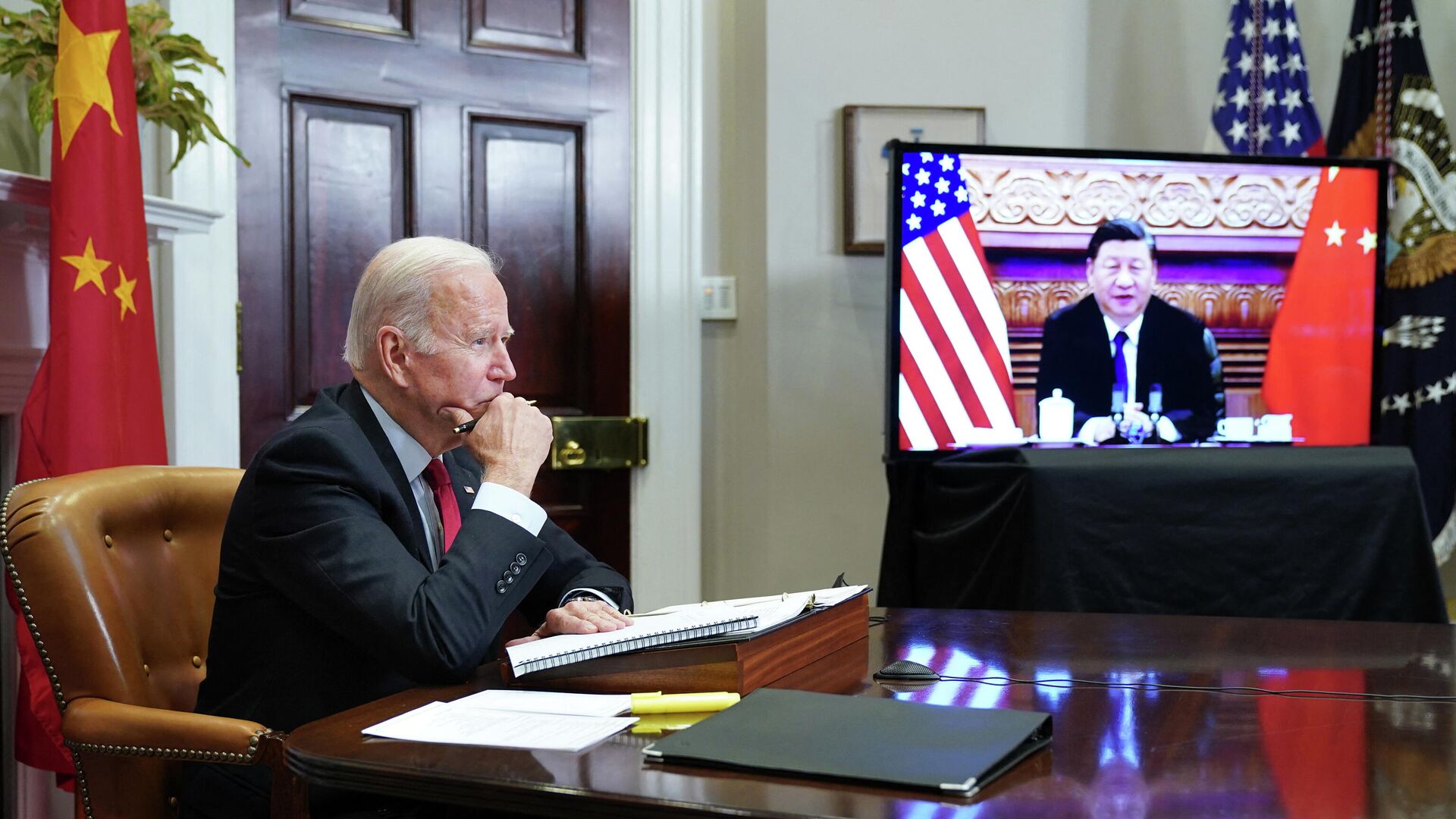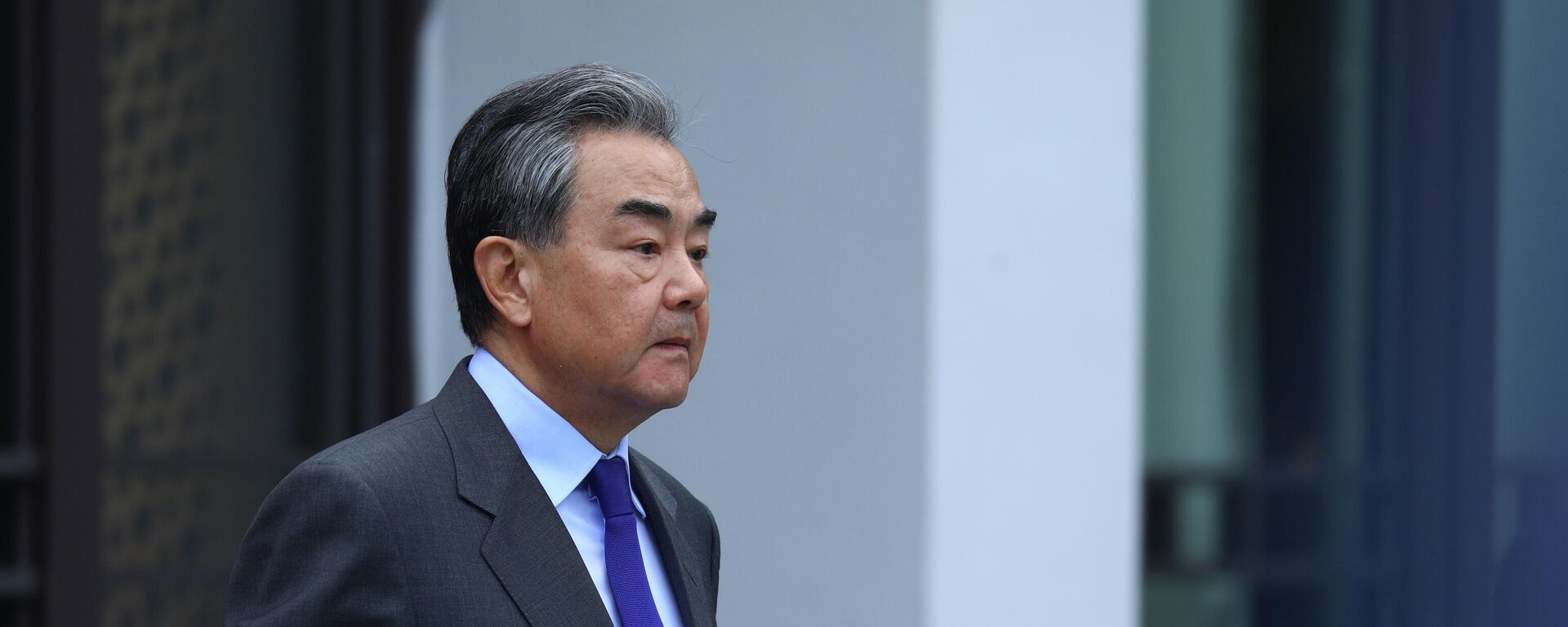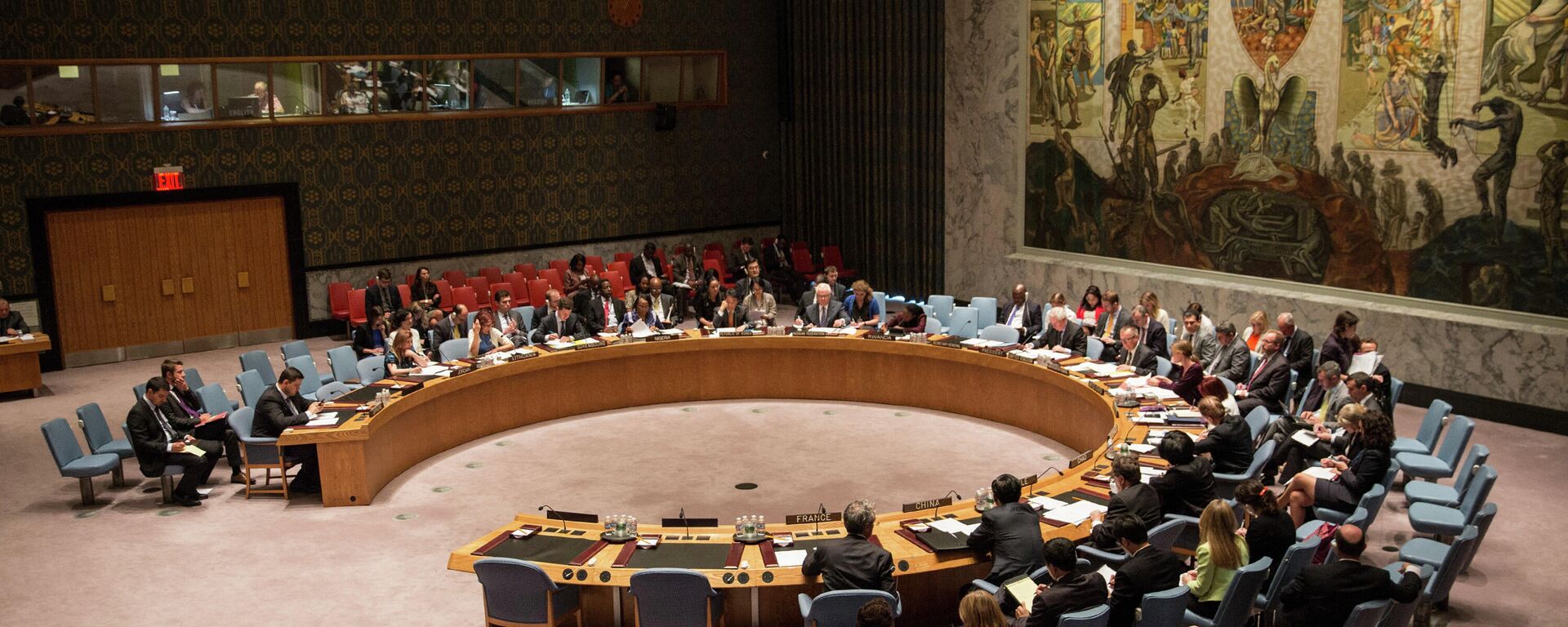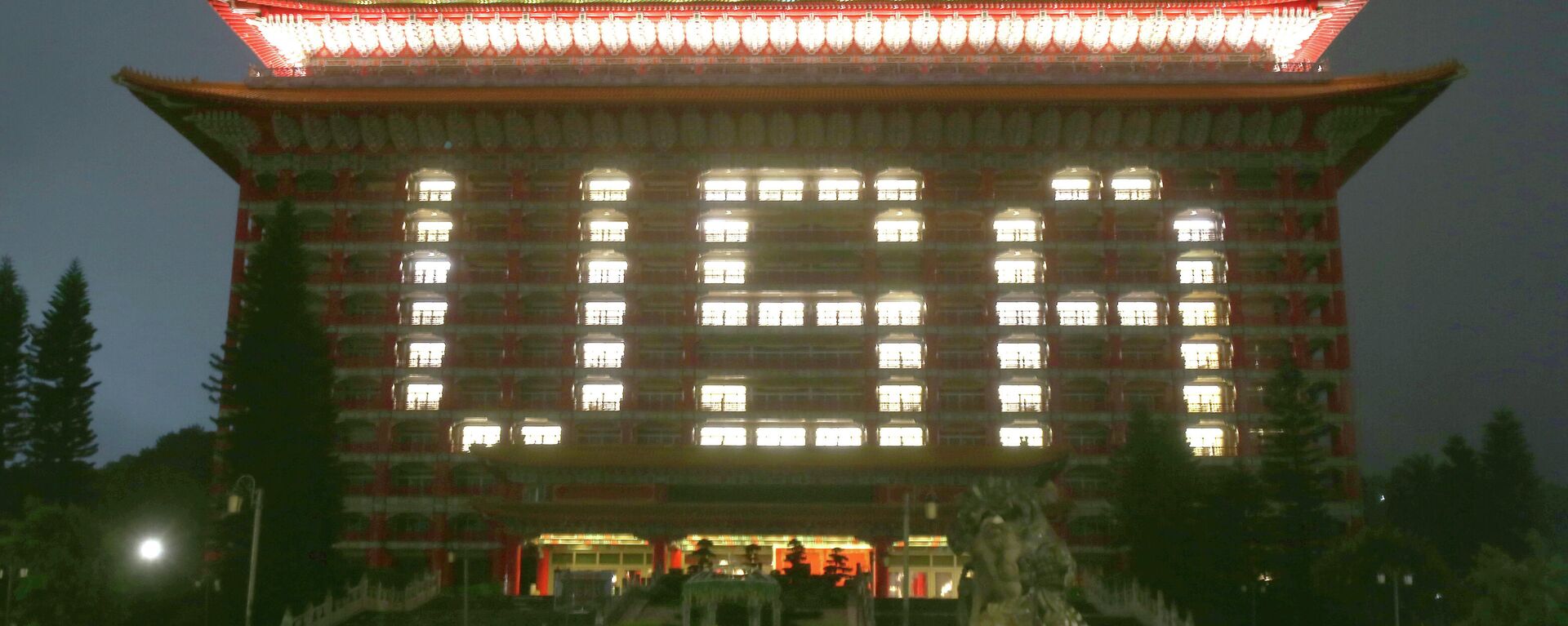China's Global Security Initiative Could Challenge ‘Barbaric & Bloody’ US-led World Order: Observers

© MANDEL NGAN
Subscribe
China’s growing economic and military power and political and diplomatic clout have sparked serious concerns among US policymakers in recent years. On Thursday, US Secretary of State Antony Blinken revealed that the US plans to use the bloc of nations it has cobbled together to confront Russia over Ukraine to challenge China as well.
Beijing’s new ‘Global Security Initiative’ concept poses a direct challenge to the US-dominated world order of a kind “unusual” for the People’s Republic, which has previously focused its global ventures on issues like development and trade, the Financial Times has reported, citing international relations experts who have studied the idea.
Chinese President Xi Jinping first proposed the GSI concept in April, providing few details before bringing it up again in an address to the foreign ministers of the BRICS countries last week, when he called on members to “strengthen” their “political mutual trust and security cooperation, maintain close communication and coordination on major international and regional issues.”
The BRICS, Xi said, should “accommodate each other’s core interests and major concerns, respect each other’s sovereignty, security and development interests, oppose hegemonism and power politics, reject Cold War mentality and bloc confrontation and work together to build a global community of security for all.”
Non-BRICS countries across the world, from Cuba, Nicaragua and Uruguay in Latin America to Syria in the Middle East and Pakistan and Indonesia in Asia have publicly expressed support for the GSI, signaling its importance beyond a mere statement of goals or general policy guidelines.
“Previously, when Chinese officials spoke about how the conflicts and security issues in the world would be resolved, the front foot was development. The answer was to provide prosperity to those troubled regions. But now there is a reprioritization,” Bates Gill, a professor of Asia-Pacific security studies at Macquarie University in Sydney, Australia, said of the GSI and its “security” focus.
An anonymous Chinese scholar advising the government indicated that the GSI was part of a broader effort by President Xi to “steer the global security order away from Cold War thinking” since 2014 and the beginning of the Ukraine crisis.
Tian Wenlin, a professor of international relations at Beijing’s Renmin University, characterized the GSI as a response to a “Western-dominated world order” which is “riddled with wars and conflicts.”
“Countries all across the world, particularly developing countries, are urgently clamouring for a new global security paradigm based on equality and mutual trust in the face of rapid changes in the international landscape. As a result, the Global Security Initiative was designed to protect the security interests of a broader spectrum of people around the world,” Tian wrote in an article on Substack earlier this month.
“The Western-led world’s history is one of one of war and conflict – throughout their expansionist conquests, the West’s major powers became increasingly belligerent, waging constant battles and eager to resort to war and violence at every step. This has resulted in the creation of a barbaric and bloody, hierarchical international system centered on the ‘law of the jungle’,” the scholar added.
Tian argued that when the US took over from Europe as the world’s hegemon after the Second World War, the planet has only become less stable, particularly after the collapse of the Soviet Union, the conclusion of the Cold War and the end of the nuclear “balance of terror.” After 1991, Washington “stepped up its efforts to encircle and restrict China and Russia,” he wrote.
“On the surface, Russia started the conflict with Ukraine that erupted in February 2022. In reality, it was the outcome of the US push for NATO’s eastward expansion and the encroachment on Russia’s strategic space. Now that a conflict has erupted, the US and the other Western countries are fanning the flames by providing military aid to Ukraine and provoking this ‘proxy war’ with the goal of prolonging the conflict as long as possible so they can profit from it,” Tian stressed.
The academic characterized the GSI as a strategy that captures the “zeitgeist” of the present era, and an initiative that proposes replacing Western-dominated concepts of security and governance with “a new security concept based on shared interests and a univeralist philosophy of All Under Heaven [a Chinese concept denoting political sovereignty] as the guiding principle.”
US Recognizes Threat
The United States has long recognized the danger to its status as the world’s preeminent economic, military and geopolitical power posed by China.
On Thursday, Secretary of State Antony Blinken gave a long-awaited speech entitled “The Administration’s Approach to the People’s Republic of China,” outlining US plans to use the coalition Washington has brought together to challenge Russia in Ukraine against China as well.
“Even as President Putin’s war continues, we will remain focused on the most serious long-term challenge to the international order – and that’s posed by the People’s Republic of China. China is the only country with both the intent to reshape the international order and, increasingly, the economic, diplomatic, military and technological power to do it. Beijing’s vision would move us away from the universal values that have sustained so much of the world’s progress over the past 75 years,” Blinken said.
Insisting that America wasn’t “looking for conflict or a new Cold War” with China, Blinken stressed that because the US “cannot rely on Beijing to change its trajectory,” it will attempt to “shape the strategic environment around Beijing to advance our vision for an open, inclusive international system.”
China and the US have clashed over a broad assortment of issues in recent years, ranging from a fierce competition in trade and technology to security questions over Taiwan, the South China Sea and China’s growing naval power. The return to great power competition follows decades of warming relations in the 1970, when Washington began a rapprochement with Beijing.





